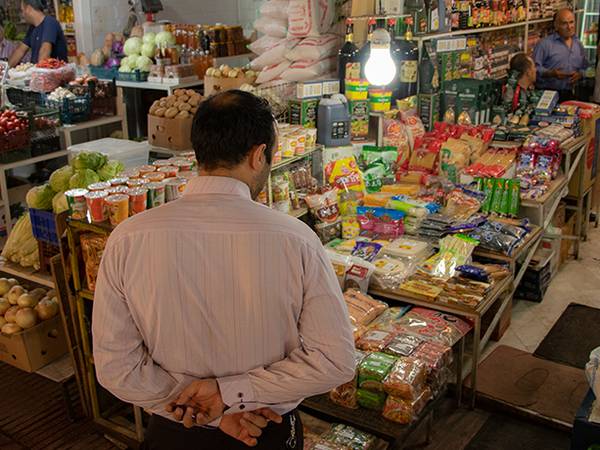Days after the 46th anniversary of the 1979 Islamic Revolution, media in Tehran are sounding the alarm over deep flaws in the governing system and a worsening economic crisis, warning that the Islamic Republic's survival is increasingly at risk.
A leading article in the Jomhouri Eslami newspaper, a conservative outlet owned by Supreme Leader Khamenei's office, noted last week that 46 years after its establishment, the Islamic Republic has yet to restore justice in Iranian society. "The people are still suffering from injustice and discrimination," the daily wrote.
The article also criticized the governing system for undermining the independence and freedom it has long promoted. Highlighting "the divide between the people and the ruling clerics," the newspaper stressed that "the people should be the driving force and focal point in the Islamic Republic" and posed a pointed question: "What is the people's role and status in the government?"
Although Iran holds regular elections, political parties and the media face severe restrictions, and only approved candidates are allowed to run.
Jomhouri Eslami also criticized the stark contrast between officials leading lavish lifestyles—driving luxury cars under tight security to pay respects at the mausoleum of the Islamic Republic's founder—and ordinary people who struggle to reach them to voice their concerns.
The daily criticized the disparity between officials and the public, noting that officials earn several times more than ordinary citizens and enjoy government-funded travel and luxury while advocating austerity. The daily warned that such a lifestyle and governance approach could undermine the political system's stability.
Meanwhile, the pro-reform website Fararu warned, "A catastrophe is on its way as half of the population in Iran is getting poorer on a day-to-day basis."
It cautioned that the situation is becoming increasingly dire, particularly for low-income groups, due to rising inflation, soaring exchange rates, price fluctuations, and ongoing economic crises. The website argued that many Iranians are struggling to make ends meet amid the financial turmoil.
"At the same time, all initiatives aimed at improving the situation have failed and remained futile. This has caused a general dissatisfaction among the public and has led to serious questions about the government's ability to tackle the current crisis," the website wrote.
Fararu cited market expert Hamid Haj Esmaili, who attributed the worsening economic situation over the past two decades not only to sanctions but also to government inefficiency in resource distribution, which has exacerbated the crisis.
Haj Esmaili noted that nearly half of Iran's population relies on government support to survive, while the government must take stronger action against corruption. He emphasized that these challenges are all linked, in some way, to the impact of sanctions and urged authorities to engage with other countries to address the crisis.
Meanwhile, the pro-reform daily Setareh Sobh published a commentary last week by former lawmaker Yadollah Eslami, who highlighted "the wide gap between the people and the government." He argued that "the officials' indifference to people's increasing problems has made many people distance themselves from the government."
Eslami also criticized officials "for the arrogance in their rhetoric when they address the nation," describing their tone as "a mixture of insult and violence." He warned that "unfortunately, some Iranian officials believe that insults and violence are a virtue for them; and in this situation, what is being sacrificed is truth, justice, and freedom."
